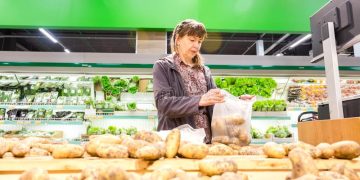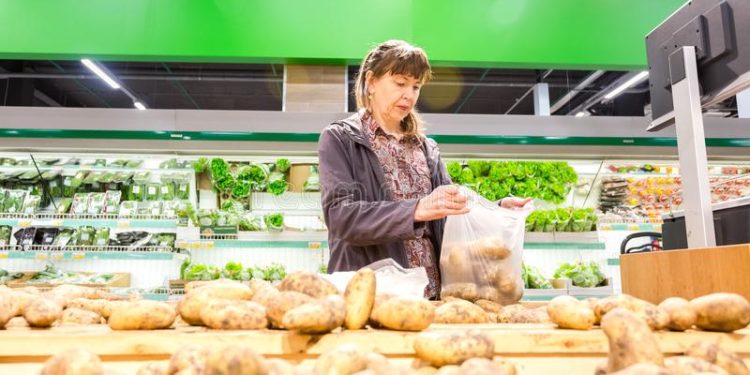In the coming years, the population of Azerbaijan will not face any food shortages, local experts assure.
Not so long ago, the chief economist of the Food and Agriculture Organization of the United Nations (FAO), Maximo Torero, made a statement that already this year about 40 million people in the world will face the problem of malnutrition.
“The agro-industrial sector is now in a state of great uncertainty. If we predict the impact [of the conflict] in Ukraine, then we will have at least 40 million more people in 2022 facing chronic malnutrition,” Torero said. “And in 2023 year – more than 70 million people.
The geopolitical situation has led to disruptions in the supply of grain, which increases the risk of a food crisis in a number of states. Since the beginning of the year, prices for wheat and corn have risen significantly. At a meeting of the UN Security Council on May 21, it was noted that the world’s wheat reserves would last only 10 weeks, and the situation is worse than in the crisis years of 2007 and 2008.
Food shortages will not affect Azerbaijan, economist Eldaniz Amirov said confidently.
It should be reminded that the readiness of Russia this year to supply over 50 million tons of grain to world markets, Russian President Vladimir Putin said at a recent meeting in St. Petersburg with the head of Belarus, Alexander Lukashenko.
Azerbaijanis have never been included in the category of undernourished. However, in 2023, some increase in food prices will still be inevitable, according to experts.
Increased inflation will continue until the end of Russia’s special operation in Ukraine, Amirov believes. Only after that can we expect the world economy to return to annual inflation in the range of 2-3%.
According to the economist’s forecasts, prices for oil, agricultural products of Russian and Ukrainian production will continue to grow in the near future.
A similar opinion is shared by the head of the Union of Free Consumers of the Republic of Azerbaijan Eyyub Huseynov. According to him, Azerbaijan is far from the countries faced with food shortages: the republic has large stocks of it.
On the other hand, the government has created favorable conditions for business development. In addition, various agricultural projects will be implemented on the liberated lands in the near future.
However, an increase in food prices is inevitable, by the middle of next year we can expect a 10% rise in prices for milk, vegetable oil and some agricultural products. Prices for bakery products will also rise by no more than 10%, the human rights activist believes.
Fertile land and price regulation
Many expect the now liberated lands to play an important role in meeting domestic demand for food.
The Ministry of Agriculture is playing a role in the smart village project, which plans to use the latest technological advances to increase agricultural productivity in the region. At the same time, the ministry reports that 72.6% of grain harvesting throughout Azerbaijan has been completed, 2.163 million tons of grain have been harvested. Thus, resources have increased significantly, and this will help keep the price of bread.
In addition, the Azerbaijani government is implementing measures to reduce or stabilize prices for basic food products. For example, the Cabinet of Ministers approved a decision aimed at reducing the cost of meat production for farmers: the need to obtain a veterinary passport for each animal (and the payment of a state duty of 20 manats) was abolished.
At the same time, during the reconstruction and development of the Karabakh and East Zangezur regions, small and large cattle are transported to the liberated lands. Last year, for the first time, 10,000 heads of small and large cattle were delivered to the Kalbajar pastures as part of a pilot project. This year – more than 300 thousand animals.
Experts expect that the development of the liberated lands will significantly reduce the country’s dependence on imports. According to available data, before the occupation, the Karabakh region covered about 15% of Azerbaijan’s meat needs. It is expected that after the restoration of agriculture in the Karabakh and East Zangezur zones, about 30 thousand tons of meat will be produced annually.
But that’s not all. The Entrepreneurship Development Fund has launched a mechanism to support micro, small and medium-sized businesses (SMEs) engaged in the production and processing of food products included in the minimum consumer basket.
Within the framework of state support, SMEs can count on subsidizing interest on loans from banks and other financial organizations. First of all, this will affect loans received for the supply of raw materials to the country for processing and further food production.
- Latest
- Trending































